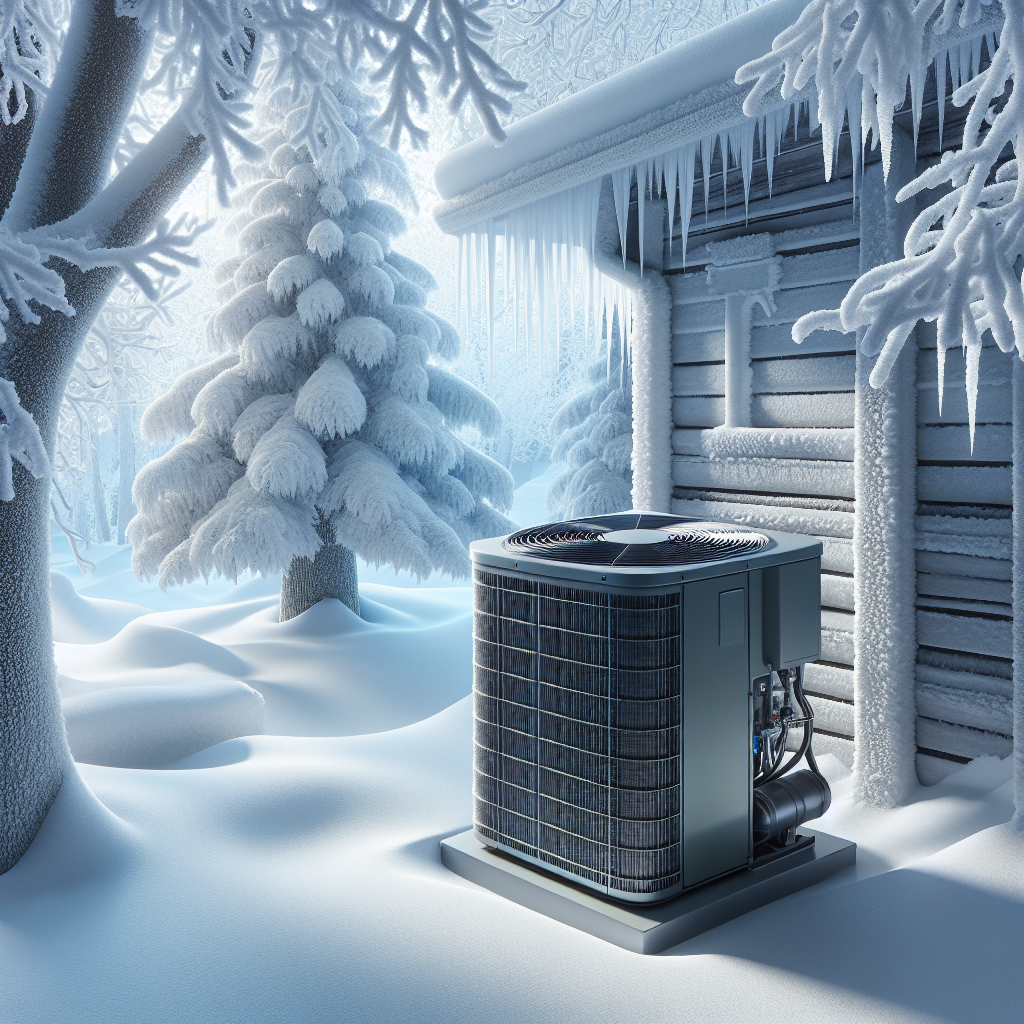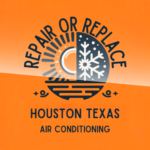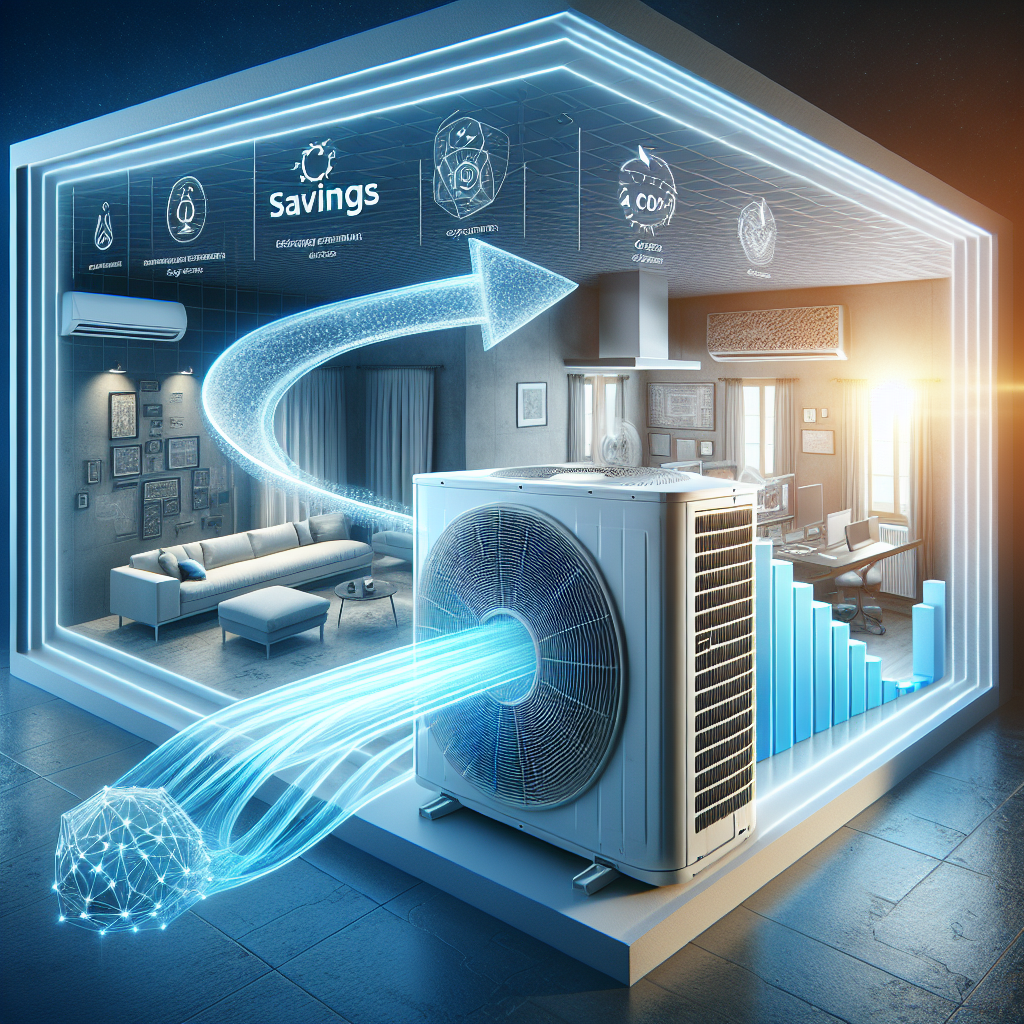When the temperature drops, many homeowners might think their cooling systems are out of sight and out of mind. Keeping tabs on your central air conditioning can be just as important in winter as it is in summer.
While some choose to disconnect their systems entirely, knowing how these units affect your winter expenses can help you stay comfortable without breaking the bank.
Taking care of your HVAC system during the colder months is important for its longevity.
Regular winter maintenance can cover various tasks like changing filters, conducting system checks, and cleaning components.
This proactive approach not only contributes to better system performance but also prevents unexpected issues when warmer weather arrives.
Energy efficiency is a big player when it comes to your HVAC system, impacting both heating costs and system performance, especially in relation to central air conditioning and winter maintenance.
.
Click here to learn more about: prices.html
Understanding HVAC System Costs
Let’s chat a bit about the costs that come with keeping your HVAC system in tip-top shape, especially as we stare down Houston’s sweltering summers. Knowing what you’re dealing with financially can really make a difference, right?
When we talk about HVAC, we’re including heating, ventilation, and air conditioning—basically, it just means staying comfortable at home. It’s crucial to get a grip on what affects the repair and upkeep costs of your air conditioning unit. That way, you can budget wisely and keep that system performance at its peak.
So, what drives these costs? Well, first off, the type of equipment you have makes a big difference when it comes to repair and maintenance fees. Older systems? They tend to rack up higher costs due to ongoing wear and tear. And with the Texas heat bearing down, your unit could be working overtime, impacting everything from temperature control to—you guessed it—those pesky utility bills.
Think about seasonal usage, refrigerant levels, installation fees, and the specific air conditioning unit on your property. The way you conduct routine inspections and preventative maintenance can make a world of difference when it comes to your HVAC system’s operational expenses. Committing to regular maintenance checks can boost compressor efficiency and help extend the equipment lifespan, which leads to some serious energy savings over time.
Now, have you thought about switching to energy-efficient models? They do often come with higher installation costs, but the trade-off is considerable savings on your monthly expenses thanks to superior performance ratings. Doing a bit of research on brand comparisons could provide you with the scoop on the best systems that fit your comfort levels and energy consumption needs.
Ultimately, knowing what your system requires not only helps you budget for repairs and maintenance but also ramps up your home efficiency. This knowledge equips you to make smart choices, whether you’re looking for affordable professional services for repairs or checking out service contracts and warranty coverage. Keeping all this in mind means you’re not just comfortable at home, but you’re also optimizing your home’s energy use effectively.

What Are Winter Maintenance Needs
Once you’ve taken a good look at the costs tied to your HVAC system, you’ll see that prepping for winter is super important. Keeping your home warm and snug not only boosts your comfort levels but also helps you steer clear of unforeseen headaches later on.
Getting a routine maintenance check is key. It helps you spot any potential problems before they escalate into expensive emergencies. Plus, it really helps you relax knowing that you’re cutting down on repair costs in the future.
So, what do you need to focus on this winter? First off, checking refrigerant levels and making sure your thermostat settings are right on point can do wonders. Don’t forget about your air filters! A quick clean or a replacement can really enhance your system performance and significantly reduce energy consumption.
Keeping your HVAC unit in check isn’t just about staying toasty; it also plays a big role in keeping those monthly expenses manageable. Regular winter maintenance helps to lower heating costs and boosts energy efficiency while making sure your air conditioning unit holds up for years to come with timely checks and necessary system upgrades.
HVAC Maintenance
- Routine maintenance helps cut down on unexpected breakdowns, ensuring overall system reliability through winter.
- Regular checks of refrigerant levels and thermostat functionality can help avoid costly repairs and improve your HVAC system’s performance.
- Cleaning or replacing air filters enhances comfort levels and lowers energy consumption by up to 15%.
- Timely maintenance extends the equipment lifespan of residential systems, saving homeowners money on premature replacements.
Evaluating Energy Efficiency During Winter
The earlier discussions have set the stage for a closer look at how to keep your home warm without overspending. As we embrace the chilly months, your HVAC system is crucial for maintaining that cozy atmosphere.
Choosing energy-efficient models can significantly enhance home comfort while keeping those utility bills in check. It’s not just about warmth; the right heating system can lower your operational expenses over time.
Doing regular maintenance tasks, such as changing air filters, can boost your energy savings. So, don’t ignore those small, yet effective upkeep routines!
Besides investing in the right units, it’s smart to consider some key strategies for evaluating heating costs. Routine maintenance checks can improve system performance and ensure your HVAC unit runs its best, even as temperatures dip. Prioritizing seasonal inspections helps you spot issues before they turn into expensive emergency repairs, which is vital for maintaining system reliability.
Let’s also talk about the importance of home efficiency for winter readiness. Reviewing insulation quality in your home, checking refrigerant levels, and adjusting thermostat settings can maximize your HVAC system’s effectiveness, leading to better indoor air quality and enhanced comfort levels.
By sticking to these practices and making informed choices about system upgrades and energy audits, you’ll not only improve your home’s heating capabilities but also achieve long-term savings on your monthly expenses. Remember, with the right approach, winter can be a season of comfort and efficiency!
How Do Heating Costs Impact Budget
Let’s talk about how those heating costs fit into your monthly budget. You know, especially now with the chill of winter creeping in, keeping your home warm can really hit your wallet. Heating often makes up a big part of our monthly expenses, so being mindful of these costs is super important.
As energy prices go up and down, adjusting your budget can help soften the blow from those rising utility bills. Getting ahead of these costs not only lifts some weight off your shoulders but also helps with smarter planning for your finances.
Staying on top of regular maintenance is a smart way to manage heating expenses and boost your home efficiency. A well-tended HVAC system is likely to run better, cutting down on repair costs and helping you dodge any nasty surprises later.
If you’re considering a system upgrade, looking into energy-efficient models could seriously give your finances a lift. Just remember to think about things like equipment lifespan, warranty coverage, and energy efficiency ratings of the options you’re checking out. They all play a part in your long-term budget.
And don’t forget about ductless systems! These can really enhance your temperature control and lead to energy savings over time. By carefully reviewing your heating options and keeping up with preventative maintenance, you’ll not only boost your home comfort but also keep those monthly expenses in check.
Managing Winter Expenses
- Heating can account for up to 50% of a home’s energy bill during winter months.
- Regular maintenance of heating systems can reduce repair costs by up to 30%.
- Energy-efficient appliances can save homeowners an average of $200 annually on energy costs.
- Upgrading to a ductless heating system can improve energy efficiency by 30% compared to traditional systems.
Assessing System Performance In Cold Weather
Let’s talk about how your heating setup performs when the temperature really drops. Keeping an eye on your HVAC system is super important for making sure your home stays warm and comfy during those chilly months. Proper maintenance can make all the difference.
As the cold settles in, your heating unit works extra hard. Without proper care, that can lead to some serious inefficiencies. Staying proactive with maintenance helps catch little issues before they turn into big headaches.
Think of maintenance as giving your system some love and attention. It can save you from those unexpected emergency repairs. Just like we mentioned with heating costs, how your HVAC system runs in winter affects both your comfort and your wallet. If it’s not operating efficiently, you may deal with poor indoor air quality and low comfort levels, which means more emergency repairs and higher compressor efficiency costs.
Regular maintenance checks are key. Make sure to change your air filters, check refrigerant levels, and set your thermostat correctly. These simple steps will boost your system’s performance. Plus, by focusing on these routine inspections, you improve energy savings and lower your monthly expenses.
And don’t forget, looking into energy-efficient models for future upgrades can be a smart move. They can help reduce operational expenses and keep your HVAC system ready to handle the winter chill. With regular care and routine system diagnostics, you can make the most out of your heating system, ensuring dependable performance even in the coldest temperatures.
Exploring Energy Consumption In Winter Months
As we wrap up our chat about keeping our heating systems performing well during the colder weather, let’s take a moment to focus on energy usage trends in winter. You know how it goes—when temperatures dip, many of us see our utility bills sneaking up, right? Well, there’s a reason for that.
When the chill sets in, our need for heat goes up, which leads to greater energy use as we nudge the thermostat higher. But what really pushes those bills up? The effectiveness of your HVAC system and how well your home is insulated play huge parts in this energy picture. If your insulation isn’t up to snuff, it might be letting that cozy warmth escape, causing you to crank up your energy consumption more than necessary.
This is where regular maintenance becomes key. Taking the time to look after your HVAC system with routine check-ups makes sure it runs smoothly, which in turn influences your heating costs. Regular maintenance can boost your central air conditioning system’s performance significantly and might even help with energy savings by allowing for proper inspections of insulation or looking at brand comparisons for better options.
Staying on top of your air filters is also super important—clean filters help improve airflow, making your system work more efficiently. By keeping track of refrigerant levels and adjusting thermostat settings, you can really tune your HVAC to keep things running smoothly and avoid those surprise emergency repairs that come from neglect.
Plus, if you’re up for it, exploring energyefficient models or considering some smart system upgrades can greatly enhance your home comfort while trimming those operational expenses. With a little planning and some routine inspections, you’ll be all set to enjoy those chilly winter months without the stress of skyrocketing bills.
Do Seasonal Usage Patterns Affect Rates
Let’s talk about how the changing seasons can really impact your utility bills. As temperatures drop, your heating setup works harder, leading to shifts in energy consumption. Then, when summer rolls in and the thermometer ticks up, those utility costs can climb too, especially if you count on centralized cooling to keep your home comfy.
During those sweltering months, many people are cranking up their air conditioning units. This surge in demand places a strain on the energy grid, often resulting in increased rates. To keep those bills from climbing too high, it’s key to ensure your HVAC system runs at its best.
This is where regular maintenance comes into play. Keeping up with maintenance not only boosts system reliability, but also enhances energy efficiency. A well-maintained AC unit can greatly reduce your expenses during peak usage periods. Nobody wants their monthly expenses to leap just to beat the heat!
Don’t forget that winter maintenance is just as important. Homeowners often overlook how much their heating and cooling systems impact performance reliability. Things like installation fees, performance ratings, and temperature regulation all influence efficiency levels year-round.
Exploring energyefficient models and making seasonal adjustments can really make a difference too. Committing to preventative maintenance and watching over your air filters and refrigerant levels helps ensure optimal air flow and system efficiency. This proactive approach not only enhances your home comfort but can also lead to energy savings and lower repair costs down the line. So, as the seasons change, remember that smart maintenance choices and timely upgrades can prepare your HVAC system for whatever the weather throws at you, all while keeping your wallet happy!
Importance Of Professional Services For Efficiency
When you think about how the seasons can impact your utility bills and the performance of your HVAC system, it’s clear that getting expert help is important. Picture a hot summer day when your air conditioning unit decides to call it quits—talk about a hassle! This is where professional services make a real difference, particularly for both heating and cooling systems.
Licensed technicians bring a deep understanding of system diagnostics, so everything runs smoothly. They’re equipped to spot potential issues during routine inspections, which helps you avoid sudden breakdowns and all the stress that comes with them.
Plus, having access to emergency HVAC services means you won’t be stuck sweating when your air flow suddenly stops. Keeping your system in excellent shape helps you dodge those expensive repair costs later on. Regular system diagnostics, checking refrigerant levels, scheduling routine inspections, and optimizing the airflow in residential units not only boost your comfort but also cut down monthly expenses.
Heating and Cooling Systems
- Regular maintenance can extend the lifespan of HVAC systems by up to 15 years.
- Routine inspections can improve energy efficiency by 20-30%, lowering utility bills.
- Emergency HVAC services are available 24/7 to tackle sudden breakdowns.
- Licensed technicians are trained to identify and solve potential issues before they become major problems.
Central AC Pricing Comparison Made Easy
Seasonal AC Pricing Trends Impact Budgets


